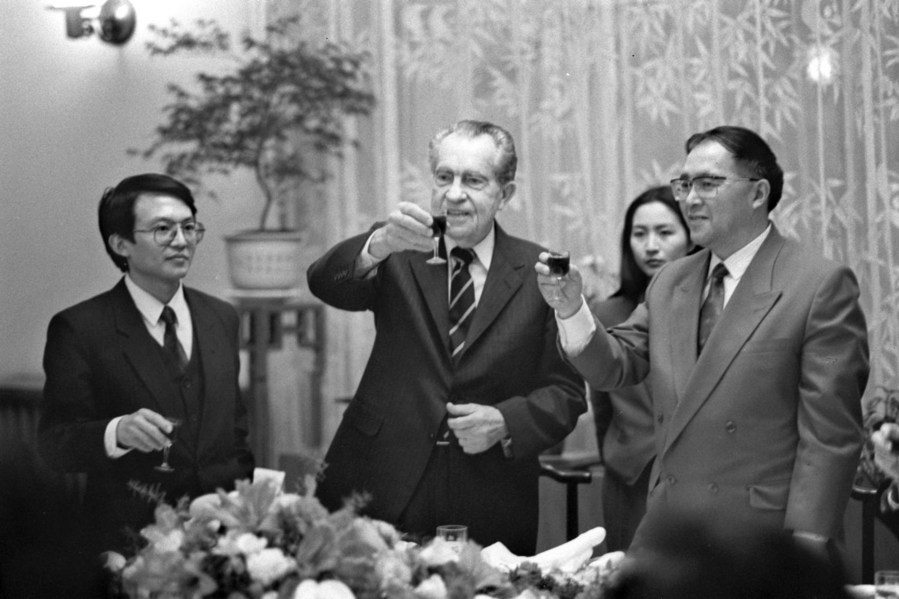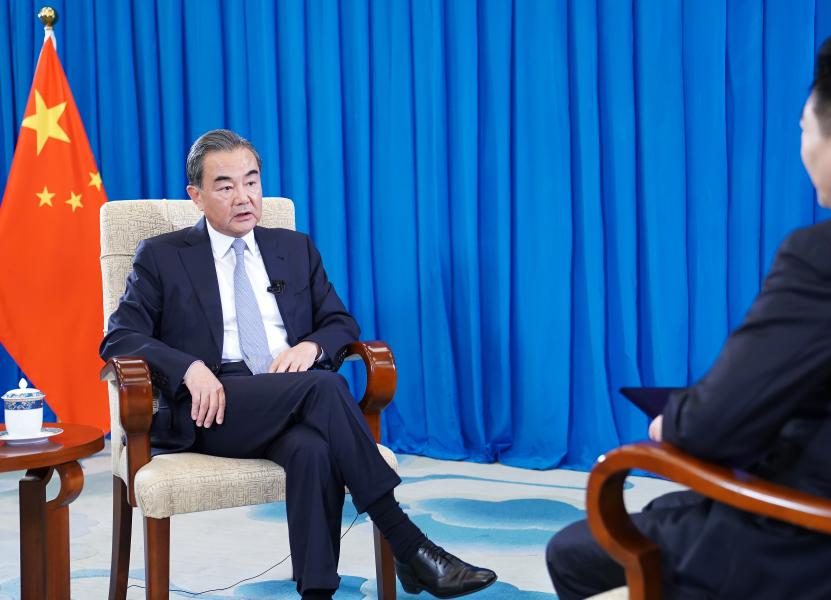
File photo shows the national flags of China (R) and the United States as well as the flag of Washington D.C. on the Constitution Avenue in Washington, capital of the United States. (Xinhua/Bao Dandan)
"While China and the United States will likely not always agree on things, direct dialogue and cordial relations are far better than what we're currently seeing," said a U.S. political expert.
He stressed "a crying need to step back, take a deep breath, and eliminate the zero-sum mindset on China-U.S. relations."
HOUSTON, Aug. 11 (Xinhua) -- Given that U.S.-China ties are the world's most important bilateral relationship, it's essential that both countries do what they can to pursue comprehensive engagement, a U.S. political expert has said.
"While China and the United States will likely not always agree on things, direct dialogue and cordial relations are far better than what we're currently seeing," Jon R. Taylor, professor and chair of the Department of Political Science and Geography at the University of Texas at San Antonio, told Xinhua recently.
The current situation is "in large part" because of "an aggressive sea-change in U.S. policy towards China in the past three years," Taylor added.

On April 11, 1993, former U.S. President Richard Nixon made his third visit to Hangzhou City. (Xinhua/Tan Jin)
Reviewing nearly 50 years of engagement and over 40 years of normalized relations between the two countries, the expert said he felt sad that the world is witnessing "the biggest reset of U.S. policy towards China since Nixon's visit in 1972."
Turning to the recent remarks of some Washington politicians, Taylor said "it has become increasingly clear that they aim to turn China-U.S. relations completely on its head," adding that "blaming China for a host of American ills plays well with certain voters."
Taylor noted that Washington's current actions do nothing but coarsen an already contentious relationship, and could actually limit U.S. foreign policy options and could also hurt the United States domestically.
"A recommitment by the United States to broad, yet realistic, engagement would be an appropriate answer," he said. "The stakes are far too high to avoid wide-ranging discussions on a host of areas of mutual concern."

Chinese State Councilor and Foreign Minister Wang Yi gives an exclusive interview to Xinhua on China-U.S. ties in Beijing, capital of China, Aug. 5, 2020. (Xinhua/Zhai Jianlan)
As Chinese State Councilor and Foreign Minister Wang Yi said during an exclusive interview with Xinhua on Aug. 5, the U.S. move to turn China into an adversary is a fundamental, strategic miscalculation, which means that the United States is funneling its strategic resources in the wrong area.
"We are always ready to develop a China-U.S. relationship featuring no conflict, no confrontation, mutual respect and win-win cooperation based on coordination, cooperation and stability," Wang said.
Taylor also stressed "a crying need to step back, take a deep breath, and eliminate the zero-sum mindset on China-U.S. relations."
"This has to end ... or it will likely lead to a new cold war," he said. "It would be a disaster for both countries and the world." ■



